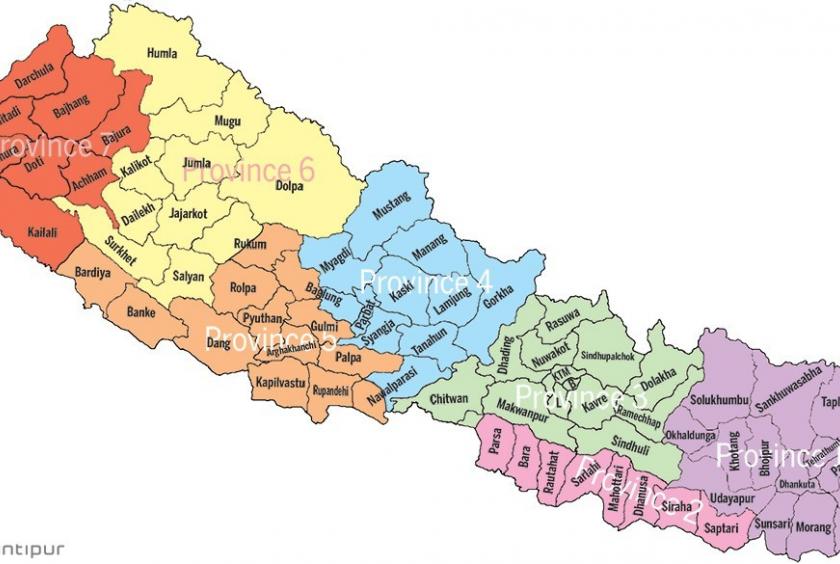Representatives of the local governments have demanded revisions in various federal draft laws, saying that they encroach upon their constitutional jurisdictions.
The federal government has readied over a dozen bills to divide powers and responsibilities between the three tiers of government. Some of them are under consideration in Parliament.
Leaders of the Municipal Association of Nepal and the National Association of Rural Municipalities say that the federal bills related to education and forest and land, in particular, contradict the spirit of the statute. They have demanded immediate revision to the bills before they are tabled in the federal parliament for endorsement.
According to the representatives of the local governments, the major breach of the statute is in the education sector. According to the constitution, local governments manage education up to the secondary level—12th grade—but the federal education bill limits the local authorities’ power to hold exams only up to the eighth grade. The bill also authorises the federal government to hire teachers.
“Step after step, the federal government has compelled us to draw the attention of the top political leadership,” said Ashok Kumar Byanju, president of the Municipal Association of Nepal.
The Ministry of Federal Affairs and General Administration had asked the local level in December last year to not formulate any laws related to education without its consent.
In February, the Ministry of Education, Science and Technology also decided to retain its offices in the districts, renaming them as the Education Development and Coordination Unit. The units, which were reduced to small departments under the District Administration Office after the local governments were formed in 2017, have been revived as subordinate bodies of the ministry.
In yet another instance, the federal government also signed a deal with the Federation of Nepali Teachers two weeks ago, agreeing to keep the authority of hiring teachers and their management with the federal government.
Byanju says such steps have generated a feeling that the central government is treating the local governments as its subordinates going against the spirit of the constitution.
The Constitution of Nepal, which came into force three years ago, accords equal status across the three tiers of government. “The constitution has clearly demarcated the explicit and concurrent authorities of the three tiers of government. Trying to compromise on our explicit authority is unconstitutional,” he added.
Schedule 8 of the statute gives local governments explicit authority to manage school education, which means that the local governments are free to hire and fire teachers, develop curricula and to hold examinations up to the twelfth grade.
Following the circular from the federal government barring the local governments from preparing laws and bylaws, Sunil Ranjan Singh, an advocate, has filed a writ at the Supreme Court challenging the decision. Singh’s petition argues that local governments are free to take measures necessary for managing school education in their area.
“A final decision on the writ will be out on April 7. Following several rounds of hearing, the Supreme Court has said it is a constitutional case and therefore needs to be prioritised,” Singh said.
http://kathmandupost.ekantipur.com/news/2019-03-05/local-units-want-revi...










